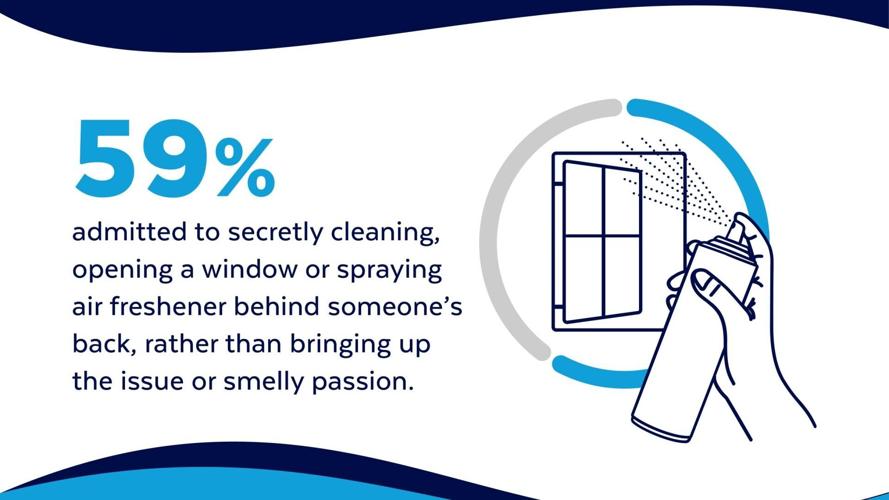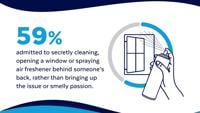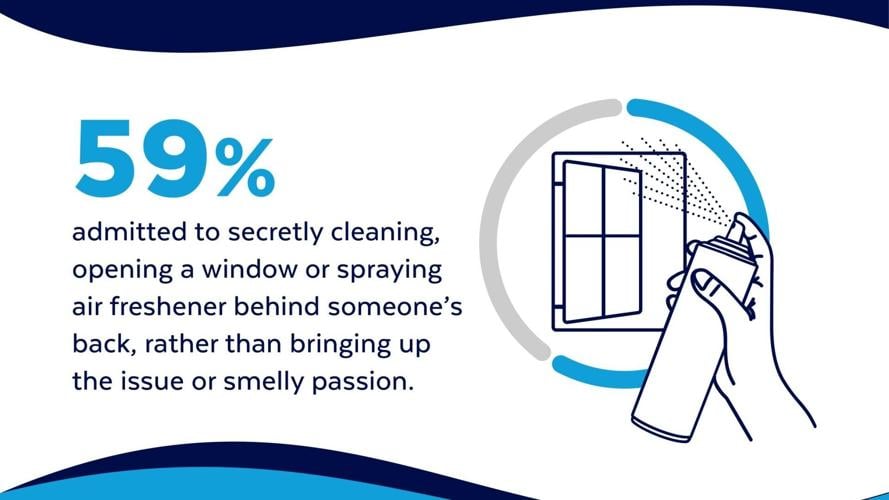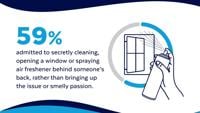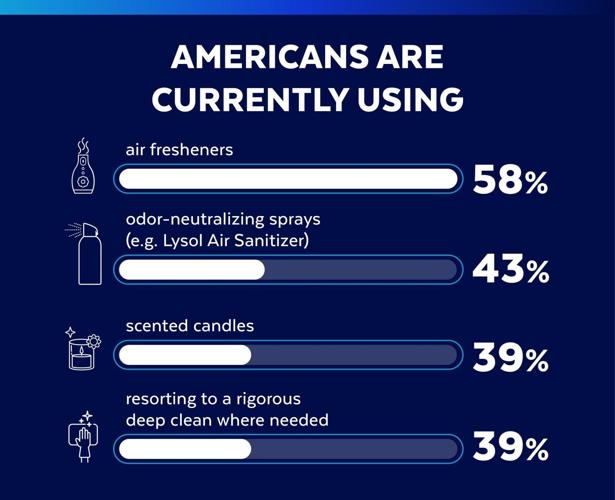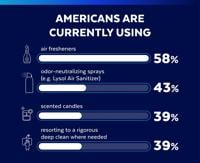
(Photo by cottonbro studio via Pexels)
Six in 10 Americans say a recurring smell in the home has caused an argument or awkward conversation.
According to a new survey of 2,000 Americans who live with a partner, roommate or family member, 58% said they’ve had arguments over recurring smells in shared spaces with culprits ranging from trash smells to post-gym stink and pet odors.
Other stinky passions like hobby-related fumes or storing fishing gear were also common sources of disharmony.
The survey conducted by Talker Research on behalf of Lysol Air Sanitizer, which kills 99.9% of odor-causing bacteria in the air*, revealed consumers’ approach to tackling bad odors in the home, especially when correlated or rooted in a loved one’s passions and habits.
The survey found 41% of those in relationships directly called out their partner for having a stinky passion, with workout gear, pet-related smells, sports gear and gardening-related materials whipping up a scent.
Results showed that it’s not always easy to tackle the topic. Fifty-nine percent even admitted to secretly cleaning or dealing with a scent, opening a window or spraying air freshener behind someone’s back, rather than bringing up the issue derived from a smelly passion directly.

David Levêque
The study also found that people will go to extreme lengths rather than bring up an issue or odor caused by a roommate’s hobbies — nearly half of those polled (48%) have avoided using a certain room of the house because of smell-related matters.
The bathroom, pet areas and living room were the three most commonly avoided spaces when trying to dodge stinky aromas.
And even more people, 52% of respondents, have considered secretly replacing certain items like rugs, curtains and other furniture to deal with a persistent odor they just couldn’t seem to shake.
Trash cans, pet beds, rugs and curtains featured high on the perpetually smelly list of items people have their eye on replacing, while a third (33%) said certain clothes or shoes they’d love to replace.

(Talker Research)
“It’s clear that recurring household odors can affect relationships and even how people use their homes,” said Joshua Murphy, R&D Senior Associate at Lysol, a spokesperson for Lysol. “Tackling these smells head-on can help maintain a home that feels welcoming for all.”
A loved one’s smelly hobbies can take their toll. 42% of the 2,000 surveyed said unpleasant smells cause annoyance or tension in their homes and living scenarios at least weekly.
Over a quarter (29%) said smells in the home impacted them multiple times a week or more.
In the raging battle against all odors, Americans are currently using air fresheners (58%), odor-neutralizing sprays (43%) or scented candles (39%), or resorting to a rigorous deep clean where needed (39%).
“From sparking arguments to driving secret clean-ups and avoidance, odors shape how we live together more than we realize,” added Benoit Veryser, Vice President of US Marketing for Lysol at Reckitt. “It’s understandable that sometimes people are looking for ways to navigate these odor problems. That’s why Lysol introduced the StinkCheck, a way to handle the stinky conversations, so you can keep cheering on loved ones’ passions.”

Annie Spratt
Survey methodology:
Talker Research surveyed 2,000 people who live with a partner, roommate or family member; the survey was commissioned by Lysol and administered and conducted online by Talker Research between Sept. 8 - Sept. 15, 2025.
We are sourcing from a non-probability frame and the two main sources we use are:
- Traditional online access panels — where respondents opt-in to take part in online market research for an incentive
- Programmatic — where respondents are online and are given the option to take part in a survey to receive a virtual incentive usually related to the online activity they are engaging in
Those who did not fit the specified sample were terminated from the survey. As the survey is fielded, dynamic online sampling is used, adjusting targeting to achieve the quotas specified as part of the sampling plan.
Regardless of which sources a respondent came from, they were directed to an Online Survey, where the survey was conducted in English; a link to the questionnaire can be shared upon request. Respondents were awarded points for completing the survey. These points have a small cash-equivalent monetary value.
Cells are only reported on for analysis if they have a minimum of 80 respondents, and statistical significance is calculated at the 95% level. Data is not weighted, but quotas and other parameters are put in place to reach the desired sample.
Interviews are excluded from the final analysis if they failed quality-checking measures. This includes:
- Speeders: Respondents who complete the survey in a time that is quicker than one-third of the median length of interview are disqualified as speeders
- Open ends: All verbatim responses (full open-ended questions as well as other please specify options) are checked for inappropriate or irrelevant text
- Bots: Captcha is enabled on surveys, which allows the research team to identify and disqualify bots
- Duplicates: Survey software has “deduping” based on digital fingerprinting, which ensures nobody is allowed to take the survey more than once
It is worth noting that this survey was only available to individuals with internet access, and the results may not be generalizable to those without internet access.







